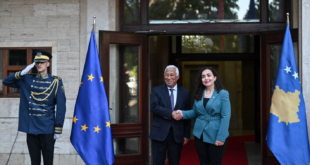The head of the OSCE Mission to Serbia, Hans Ola Urstad, has expressed concern regarding new amendments to the Law on Public Information, which could be passed by the Serbian parliament on August 31, daily Danas reports.
“This is the second time this year that media legislation is being processed under urgent procedure. Such a practice threatens the quality of the legislation and its implementation, and could harm media reform in Serbia,” he said.
The lack of transparency and public dialogue during the drafting of the amendments to the law is also a cause for concern, Urstad added.
In July, the Serbian government adopted the first set of amendments to the Law on Public Information without prior debate.
The OSCE mission head welcomes some of the provisions in the proposed amendments regarding the responsibilities of media outlets, editors and distribution companies.
“However, the proposed amendments set fines that are too high for [the] Serbian context; which could lead to self-censorship and the closure of media outlets,” Urstad stressed.
Emendations that allow authorities to close media companies whose accounts have been frozen for more than 90 days in a year, and that ban the transfer of ownership rights of media outlets also drew criticism from Urstad.
“The OSCE Mission supports efforts by the government and all stakeholders to create a media environment in which professional standards, ethical norms and legal provisions are fully respected,” he concluded.
The ruling coalition failed to garner a majority support in parliament for the latest amendments in recent months.
Media analysts speculate that if the parliamentary opposition – which consists of the Serbian Radical Party, New Serbia, the Serbian Progressive Party, Democratic Party of Serbia and Liberal Democratic Party – takes a united stance against the amendments they will not pass.
The head of the Socialist Party of Serbia, Interior Minister Ivica Dacic, announced last week that his party would maintain its current stance of choosing not to vote on the law changes. However, the party would be prepared to consider voting in favour should the majority of journalists’ organisations, the media and international organisations reach a consensus on the issue, he said.
 Eurasia Press & News
Eurasia Press & News



